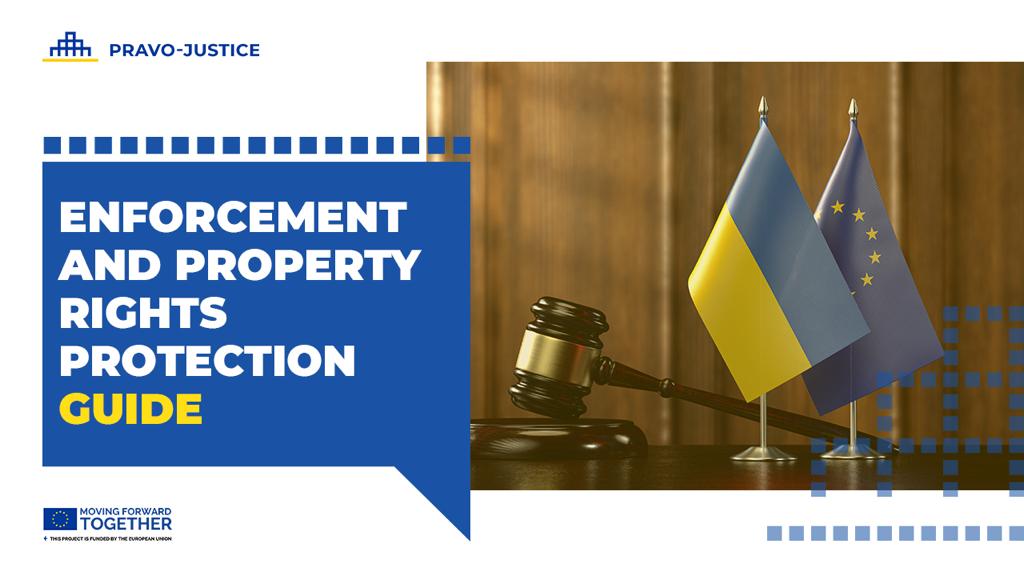EU Project Pravo-Justice Focuses on Solving the Systemic Problem of Insolvency of State-Owned Enterprises

Ukraine has a massive number of state-owned enterprises that are not operating. If such enterprises continue to exist, they create a whole range of extra financial, social, corruption and even environmental problems. It is when an enterprise “exists only on paper”, but there is no contact with its manager, and the fate of its assets is absolutely unclear. The vast majority of such enterprises face skyrocketing debts to both public and private sector. Therefore, such enterprises are more of a burden to the state than an asset.
For a long time, the legislation did not provide a clear and transparent mechanism for the state to be able to get rid of such enterprises and ensure a balance between the interests of debtors and creditors. In November 2022, Draft Law No. 8205 “On Peculiarities of Dissolution by Decision of the Owner of State-Owned Enterprises and Commercial Companies where the State Owns More than 50 Percent of the Authorized Capital” (hereinafter referred to as Draft Law No. 8205) was registered. EU Project Pravo-Justice experts took an active part in the activities of the working group preparing this draft law for the second reading.
On 11 April 2023, the abovementioned law was adopted by the Parliament of Ukraine and sent to be signed by the President of Ukraine. Within the framework of the working group, EU Project Pravo-Justice experts provided a number of constructive recommendations on improving Draft Law No. 8205, which were to a large extent taken into account by those drawing up Draft Law No. 8205 and positively assessed by members of the working group. In particular, EU Project Pravo-Justice experts:
- Proposed to use standardized forms of schedules and progress reports on winding-up procedure and specified requirements for them;
- Clarified requirements set for a liquidator and proposed a procedure to select a liquidator;
- Improved numerous provisions of Draft Law No. 8205 from the technical and legal points of view;
- Harmonized wording of Draft Law No. 8205 to align it with other legislative acts;
- Substantiated legal and operational risks that may arise if a legal entity or commission is appointed as a liquidator of a state-owned enterprise.
Thus, Draft Law No. 8205 introduces a procedure for liquidating state-owned enterprises that do not conduct economic activity that is governed and controlled by the owner (the state). This will be achieved by setting forth the liquidator’s rights and obligations in detail in Draft Law No. 8205. The liquidator appointed by the State Property Fund is fully accountable to the latter and is obliged to inform the Fund on a monthly basis about the progress of liquidating the respective state-owned enterprise. It is proposed to appoint bankruptcy trustees as liquidators on a competitive basis since they are most qualified when it comes to liquidating businesses. At the same time, Draft Law No. 8205 does not prohibit appointing an individual who is not a bankruptcy trustee as a liquidator. If adopted, Draft Law No. 8205 will facilitate tracing and further transparent selling property and assets of state-owned enterprises that do not conduct economic activity at public auctions.
A positive novelty of Draft Law No. 8205 is that it introduces a transparent procedure for paying for the services provided by liquidators of state-owned enterprises. Until now, this issue remains unresolved and liquidators of state-owned enterprises in fact operate in the “grey zone” and they do not receive remuneration for this, but the amount and respective procedure can be defined by law. In our opinion, if the President of Ukraine signs Law No. 8205, it will help solve the systemic problem of insolvency of state-owned enterprises.
EU Project Pravo-Justice will continue to monitor further developments in this area and will provide assistance to the State Property Fund and the Ministry of Justice of Ukraine in the field of bankruptcy and insolvency of enterprises in the public sector of the economy.